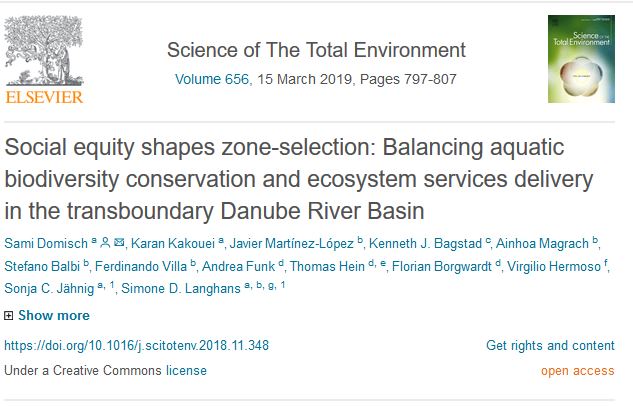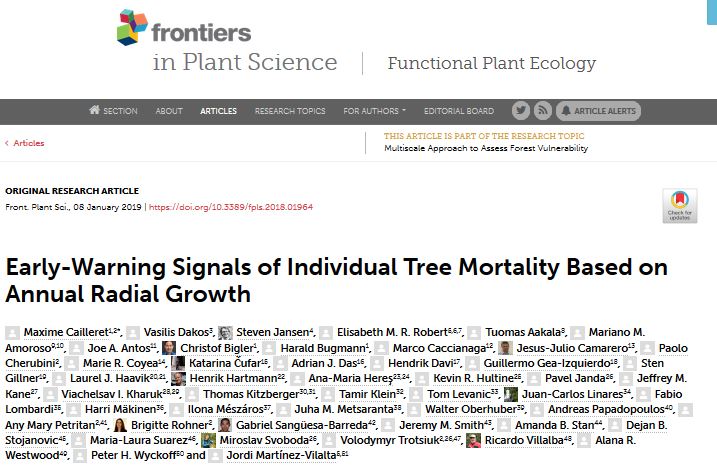December 20, 2018
Published by BC3Research Javier Martínez López Ainhoa Magrach Stefano Balbi Ferdinando Villa Simone Langhans at December 20, 2018
Categories
Freshwater biodiversity is declining, despite national and international efforts to manage and protect freshwater ecosystems. Ecosystem-based management (EBM) has been proposed as an approach that could more efficiently and adaptively balance ecological and societal needs. However, this raises the question of how social and ecological objectives can be included in an integrated management plan. Here, we present a generic model-coupling framework tailored to address this question for freshwater ecosystems, using three components: biodiversity, ecosystem services (ESS), and a spatial prioritisation that aims to balance the spatial representation of biodiversity and ESS supply and demand.
Do you like it?
December 20, 2018
Published by BC3Research Ferdinando Villa Stefano Balbi Ainhoa Magrach Maria Almagro Javier Martínez López at December 20, 2018
Categories
Five new publications related to ARtificial Intelligence for Ecosystem Services (ARIES) applications have been recently published on a special issue of Science of the Total Environment. These publications have been developed by BC3 researchers Ferdinando Villa, Stefano Balbi, Ainhoa Magrach, María Almagro and Javier Mártinez, in collaboration with other researchers from other institutions belonging to the AQUACROSS project
Do you like it?
January 3, 2019
Published by BC3Research Noelia Zafracalvo Eneko Garmendia Unai Pascual Ignacio Palomo at January 3, 2019
Categories
The Convention on Biological Diversity Aichi Target 11 requires its 193 signatory parties to incorporate social equity into protected area (PA) management by 2020. However, there is limited evidence of progress toward this commitment. We surveyed PA managers, staff, and community representatives involved in the management of 225 PAs worldwide to gather information against 10 equity criteria, including the distribution of benefits and burdens, recognition of rights, diversity of cultural and knowledge systems, and processes of participation in decision-making.
Do you like it?
January 8, 2019
Published by BC3Research at January 8, 2019
Categories
Tree mortality is a key driver of forest dynamics and its occurrence is projected to increase in the future due to climate change. Despite recent advances in our understanding of the physiological mechanisms leading to death, we still lack robust indicators of mortality risk that could be applied at the individual tree scale. Here, we build on a previous contribution exploring the differences in growth level between trees that died and survived a given mortality event to assess whether changes in temporal autocorrelation, variance, and synchrony in time-series of annual radial growth data can be used as early warning signals of mortality risk.
Do you like it?




